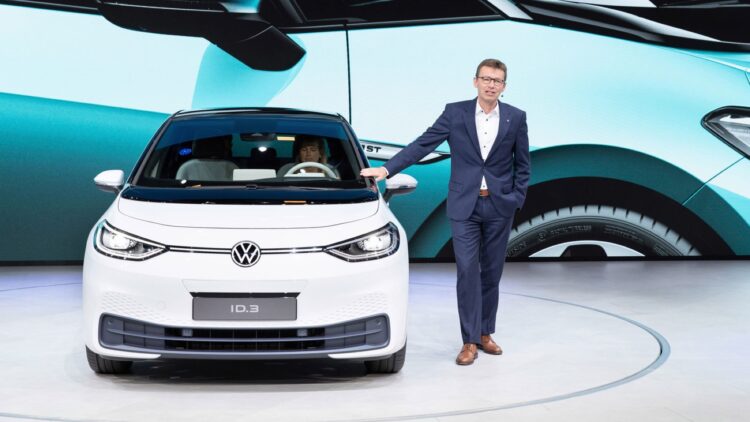The controversy about other types of automotive powertrains has also been going on, and several companies have different opinions about whether or not they should develop FCVs instead of BEVs. As the leading worldwide automobile manufacturers stepped forward to claim their standings, Volkswagen, for instance, in the latest statement, has weighed in with a decisive no to the hydrogen for private cars in the foreseeable future. It also has ramifications for the potential direction of new products that the company might bring to market and the overall road map of the car industry as it transitions towards electric vehicles.
Volkswagen’s Chief Technology Officer’s statement
In a recent interview with the Edison electric-vehicle news website, Grünitz, the CTO of the Volkswagen brand, was informed by the officer that hydrogen “won’t become a reality in private mobility anyway.” He said that the VW brand will also “only rely on battery-electric systems in future” because “we at VW can live wonderfully with electric batteries”.
These comments imply that Volkswagen has no intention to invest in refining hydrogen fuel cell technology for theirGrünitz’s comment underscores the firm’s focus and plan of battery electric vehicles as the primary area of electrification into the future. His statement negates the probability of hydrogen fuel cells in the private mobility segment, implying that there is no significant reason or gain for Volkswagen to invest more in the said technology for their cars, mainly targeted at the middle and lower end of the market.
Contrasting views from other automakers
In this regard, Grünitz has a different attitude than other carmakers, including BMW’s CEO Oliver Zipse, who opined earlier that it would become ‘unsafe’ if all the vehicles become electric. Hydrogen cars will turn into the ‘cool’ ones shortly. However, Volkswagen seems to fall in line with companies like General Motors.
The company left the hydrogen-electric models in 2020 and more recently, Stellantis, which has turned down the technology. This divide shows the discrepancies in investment in different technologies by different automobile manufacturers, with some focusing more on these types of propulsion.
The Efficiency and cost considerations
From a considerations viewpoint, there seem to be certain drawbacks and higher costs of utilizing hydrogen in the case of FCVs than BEVs. Compared to the ability to plug in and run on electricity, converting electricity to hydrogen and back to electricity within the FCV is less efficient. It leads to higher running costs for FCVs.
Secondly, hydrogen is rare, and its production and distribution is difficult, which gives another reason for private and commercial vehicles’ archaic appearance to the untrained eye regarding fuel choice.
While the future of automotive propulsion technologies remains uncertain, with various companies exploring different options, Volkswagen’s stance is clear: Out of all the details described in the situation, the company does not consider hydrogen a severe concept for private cars.
Nonetheless, Volkswagen has continued outlining its vision more and more, stating that its future depends on battery electric vehicles as a primary product. It aligns well with the current trend in the automobile production market, emphasizing electric car sales. But this shade remains, and other constructors of automobile vehicles could continue searching for hydrogen usable based on the conditions or depending on the kind of automobiles, for instance, trucks or automobiles meant for heavy usage minimum use, for example, for carriers, etcetera.
With advancing tech in hydrogen and the growth of infrastructure and investments in such a context, the economics surrounding hydrogen might change in response and become even more suitable for private mobility utilization. However, that is not the reality today, as Volkswagen is already moving forward at top speed towards leveraging battery-electric vehicles in the near and medium term.

